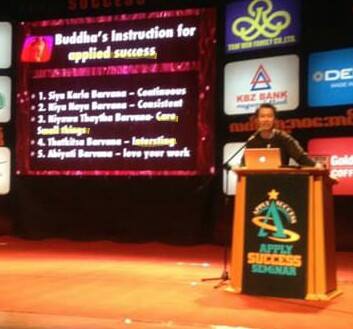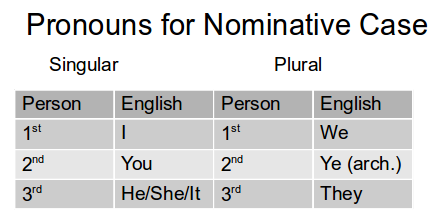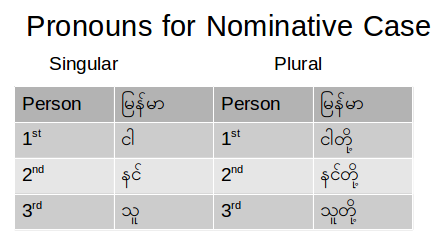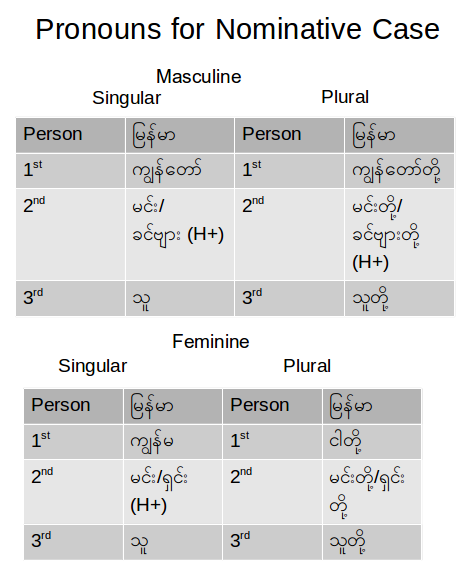What I find absolutely hilarious, is the rare situation in which I understand Burmese better than a native of Myanmar. This blogger, Dr. Abdul Rahman Zafrudin, is a Rohingya political activist who frequently head-hunts anyone he suspects of being anti-Rohingya. To him, this means bascially any person from Burma who is not a Rohingya or another ethnic person who is not (at least nominally) adherant to the Islamic faith. In this blog post, he misinterprets both of Ven. Ravika’s posts (Ven. Ravika is a monk in my hometown and I’m well-aware of his political views. Although politics do not interest me, mis-interpretation and mis-quoting of statements does) and thus labels Ven. Ravika as a racist. What he fails to understand is that Ravika, being a resident of the U.S., does indeed have freedom of speech and of the press.
More importantly, the translation of Ravika’s first phrase is inaccurate. Here is a better translation:
[i] When I observe these troublemakers, I notice that rather than being Burman, they tend to be Indians, Chinese, and multi-ethnic individuals who have taken Burman names. It’s evident that they are not recognized as pure Burmans by the Burmans themselves.
They appeal to the groups that don’t like the Burmese and reap the financial benefits therein. The way I see it, is that if the indigenous peoples and democrats had come to power [in the past], these impure [people] would be flattering the public servants in order to corrupt them. (NOTE: Meaning, it’s not really about ethnic power, but using your ethnicity as a ways and means to get your way.)
Let’s get rid of these pieces of trash for our country[‘s sake].[/i]It should be pointed out that Ravika is not talking about all minorities, but these particular ones that are abusing powers and making other minorities look bad. Ravika is himself Mon and not Burman. Thus he is also included in the “not recognized” category. As for the “flattering the public servants” section, I’m sure he means that the indigenous non-Burmese public servants would be swayed by the appeals of the Rohingya and other minorities leading to just about the same amount of corruption that Burma has now.
Regarding the Chin soldiers, the context must be reviewed in that second post. He is talking about Chin soldiers from the “sticks” of Burma, not educated individuals living in a metropolitan society, like the many soldiers in the Myanmar military. So, of course they are (ရိုင်း) compared to them. However, he also mentions that those Chin are banding with the Burmese under Gen. Khin Nyunt in order to get food. Context people.
Dr. Ko Ko Gyi, you’re engaging in the exact same things that Ravika warned about: you’re using your ethnicity and authority given to you by foreigners who pamper you out of disgust of the Burmans to try to promote your political agenda. I for one, am not at all swayed by your pseudo-intellectualism.
That’s as political as this blog will go.
Win Hein
To whom it may concern in USA Government and authorities in Fort Wayne, Indiana State.
Reference: Complaint about Ven Ravika, Mon Monk living in Fort Wayne, Indiana, USA
Dear Sir/Madam,
May your honours kindly allow me to complaint about the above named person, Myanmar National originally from Mudon, Mon State, Myanmar, residing at Fort Wayne, Indiana, USA. His Face Book Account is @ https://www.facebook.com/ven.ravika
As he is believed to be a Mon Buddhist Monk and is a very popular activist amongst Myanmar and Mon Buddhist Democrats, his Racist Bigot Hate Speeches are detrimental to the mixed blooded people and non-Buddhists in Myanmar. Once he wrote that the Chins (soldiers) are non-Bama Christians and are wild and primitive people (soldiers). I have attached the original screenshots of his Hate Speeches against the mixed blooded Indian and Chinese below with the translation in English.
View original post 183 more words






